Liverpool vs Manchester City and how following Sir Alex Ferguson's lead could finally see the unbeatables beaten
In the entire history of the English league, only five sides have been on longer unbeaten league run than this City - but the Reds have what it takes to end the streak
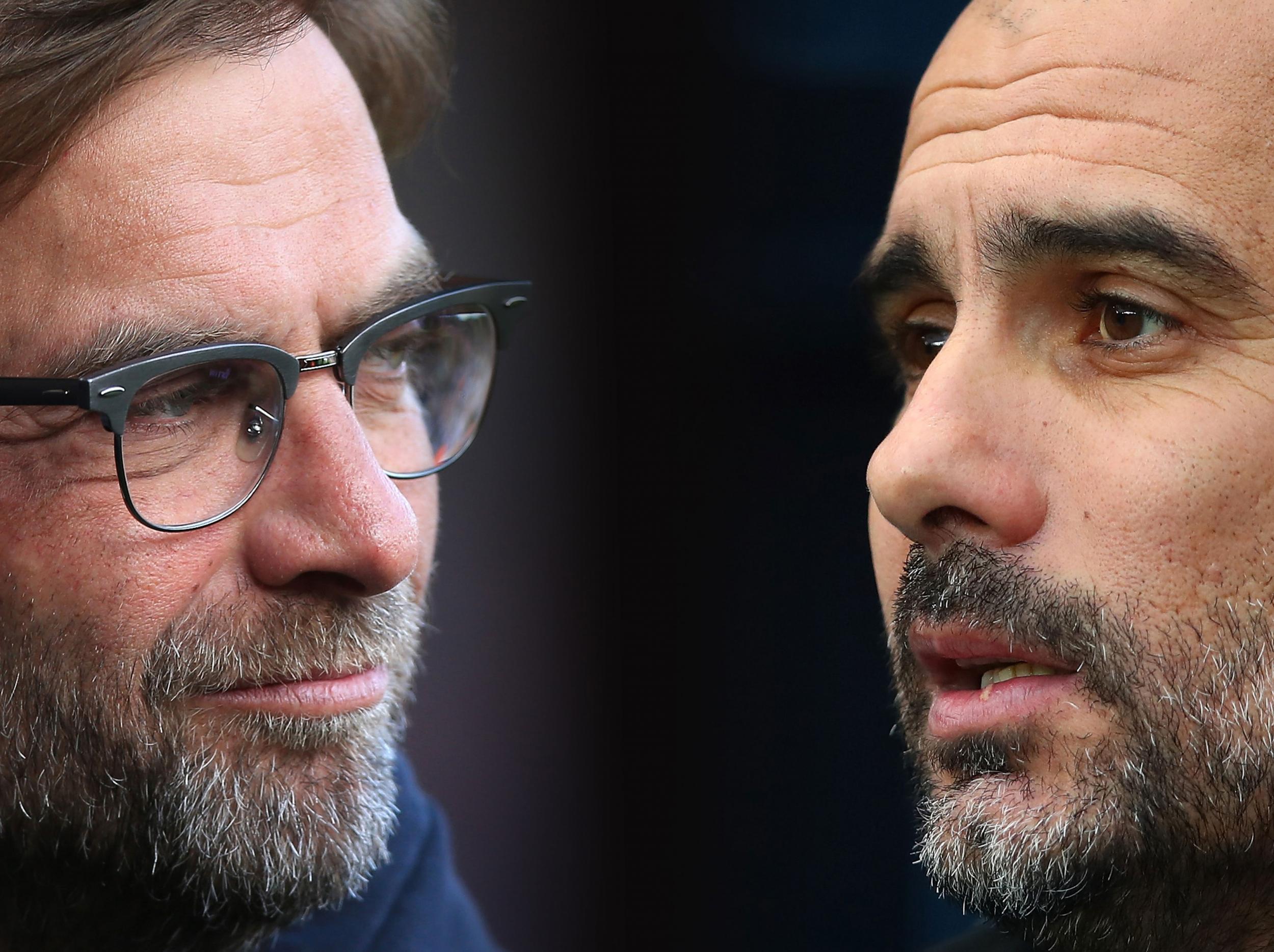
Your support helps us to tell the story
From reproductive rights to climate change to Big Tech, The Independent is on the ground when the story is developing. Whether it's investigating the financials of Elon Musk's pro-Trump PAC or producing our latest documentary, 'The A Word', which shines a light on the American women fighting for reproductive rights, we know how important it is to parse out the facts from the messaging.
At such a critical moment in US history, we need reporters on the ground. Your donation allows us to keep sending journalists to speak to both sides of the story.
The Independent is trusted by Americans across the entire political spectrum. And unlike many other quality news outlets, we choose not to lock Americans out of our reporting and analysis with paywalls. We believe quality journalism should be available to everyone, paid for by those who can afford it.
Your support makes all the difference.Back in 2004, when Arsene Wenger’s Arsenal were being talked about in the gushing tones that Manchester City are now and were on an even longer unbeaten league run, one of Sir Alex Ferguson’s close friends made the mistake of mentioning how good his rivals were to watch.
“Not against Manchester United,” the great Scot snapped back, in a response that was more a "growl". If the pure winner in Ferguson was already aggrieved at losing his title to Wenger, the pure competitor in him just couldn’t bear the idea that close rivals were seen as so far above. So, he ensured his side proved they weren’t. They famously ended that 49-game unbeaten league run in a fiery United-Arsenal match to end all United-Arsenal matches.
The rage, or rather the wounded pride, is particularly relevant here.
Ferguson might have been a unique manager, but this situation was not, nor was it even unique in his own United career. In the entire history of the English league, only five sides have been on longer unbeaten league runs than this City, who are on 30 matches. Those sides are:
49 - Arsenal 2003-04
42 - Nottingham Forest 1977-78
40 - Chelsea 2004-05
34 - Leeds United 1968-69
31 - Liverpool 1987-88
What links them beyond winning the league from those long unbeaten runs is that it was also their closest rivals or challengers that ended those runs.
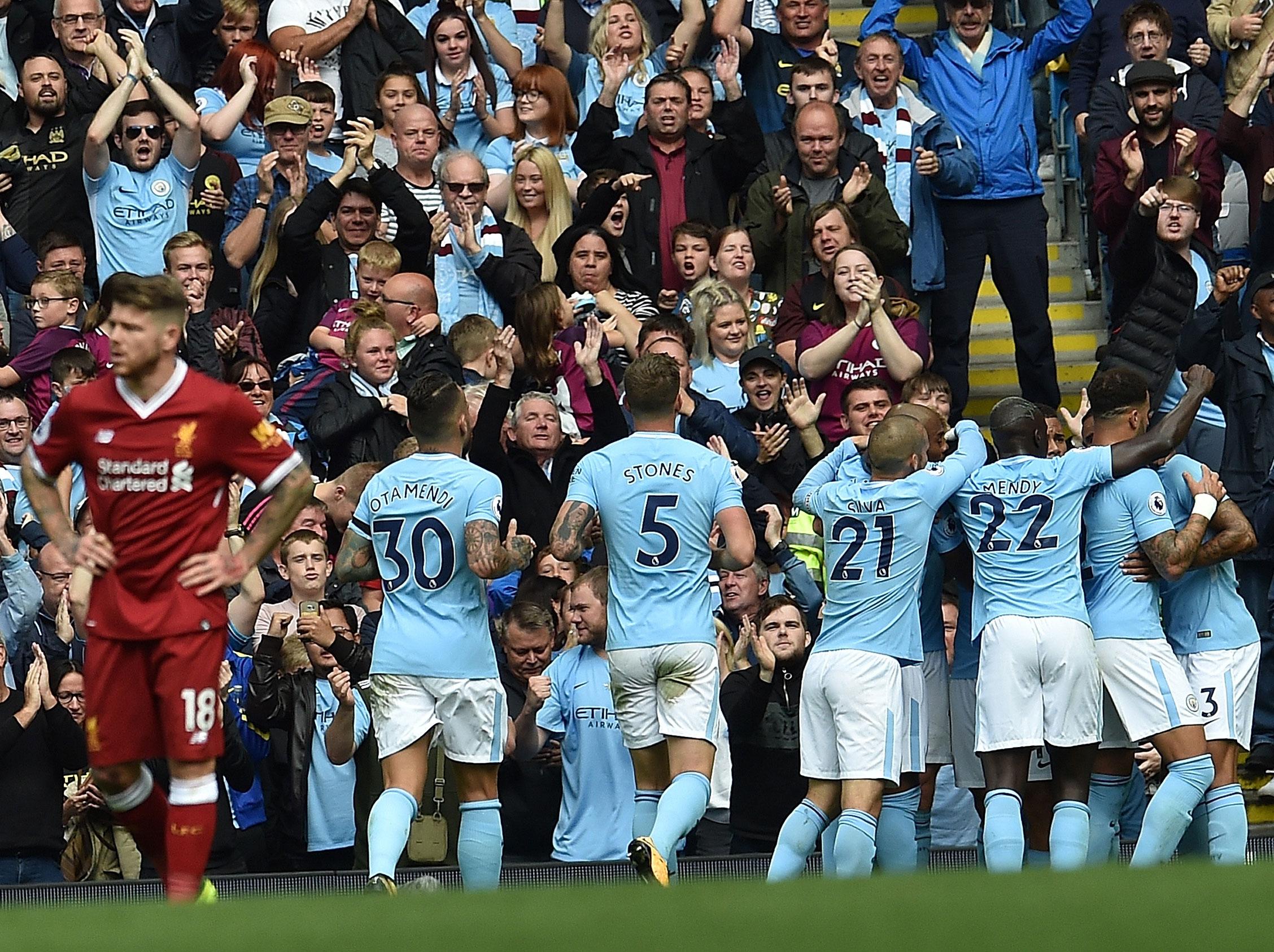
Forest 1978 were defeated by a Liverpool they had just beaten to the title and knocked out of the European Cup, but who would reclaim the league later that season. Chelsea’s run was finished by a United again fired by Ferguson, but a Ferguson who was at that point criticised as finished himself, especially against an upstart like Jose Mourinho. The Scot wouldn't just win that game, but would go on to win the league again the next season. Defending champions Leeds 1969 would lose to the Everton that deposed them that same campaign, 19 years before an Everton who were themselves defending champions would claim a 1-0 riposte against a rampant Liverpool well on route to the league.
The deeper point here, as City go to Anfield looking to prolong their own run and actually match that 1988 Liverpool side on 31 games, is whether it gradually gets to the point that kind of deeper motivation is required to finally beat them. It does feel like it goes beyond mere quality.
The very fact City are on this run suggests they are on a level beyond most teams. It obviously requires more to beat them, since it hasn’t been done in so long, but there are more levels to this too.
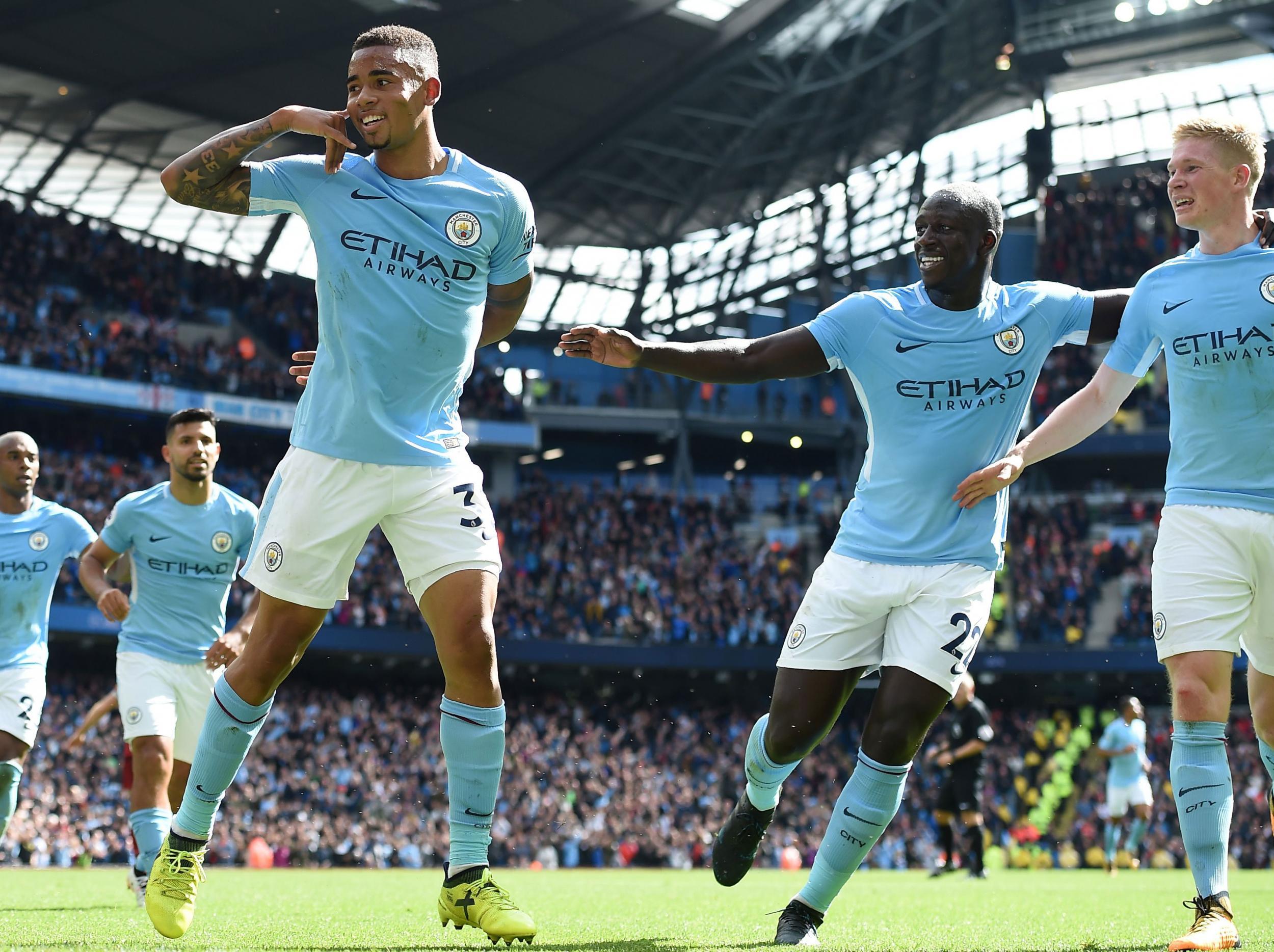
When team are on such sensational runs, one of the problems most commonly discussed is that the majority of opponents face them almost expecting to be beaten. That’s especially the case when they go behind, and so goes any pride. The other side to that is the unbeaten team themselves begin to feel like they just can’t be beaten. They develop a rhythm, and then an “aura” that further intimidates opposition, to the point they are almost performing on pure instinct rather than any kind of conscious thought.
It is therefore all the more disruptive when they finally face a side that is close to them in quality but applies it with much greater conviction; with the conviction of the defiant.
This is what Liverpool themselves showed against Brian Clough’s unbeaten Forest in 1979.
“People talk about the old melees between Manchester United and Arsenal,” Phil Thompson told Danny Taylor in the excellent book ‘I Believe in Miracles’. “They had nothing on this.”
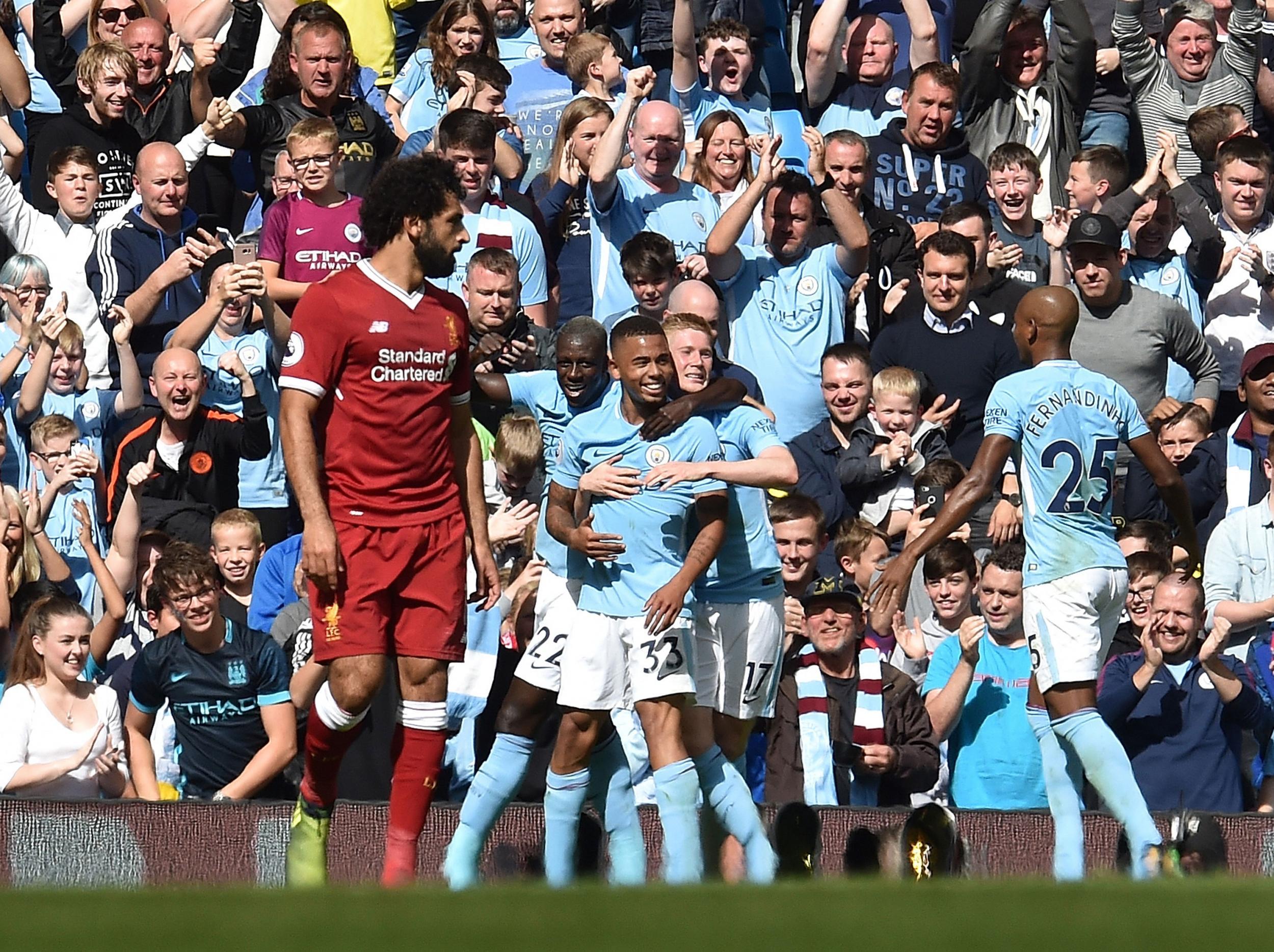
The two teams hated each other, but Liverpool especially hated what Forest had subjected them - these great champions - to. Clough’s side had taken their domestic title, thereby preventing Liverpool from winning three leagues in a row, and then taken them down on the continent, also preventing them from winning three European Cups in a row. Liverpool couldn’t even lay a glove on them, going five games against Peter Shilton without scoring.
Worse was the needle. In that first-round European Cup tie in September 1978, Forest had been 1-0 up in the home first leg through Garry Birtles - mocked as an unknown - only for Emlyn Hughes and other Liverpool players to keep goading them “one’s not enough! One’s not enough!” “Not enough going to Anfield.”
Liverpool were trying to do too much, however, and were ultimately caught by Colin Barrett on the break. It was 2-0, and too good an opportunity to waste. The Forest players estimated that every single one of their XI purposely went by Hughes to ask him whether two would be enough. Liverpool, and especially Thompson, had “faces like thunder”.
Elimination from Europe was the final straw, and meant Forest’s next meeting against Liverpool would finally end that 42-game unbeaten run. Paisley’s side were like a team possessed. “They murdered us,” Clough admitted after a 2-0 defeat.
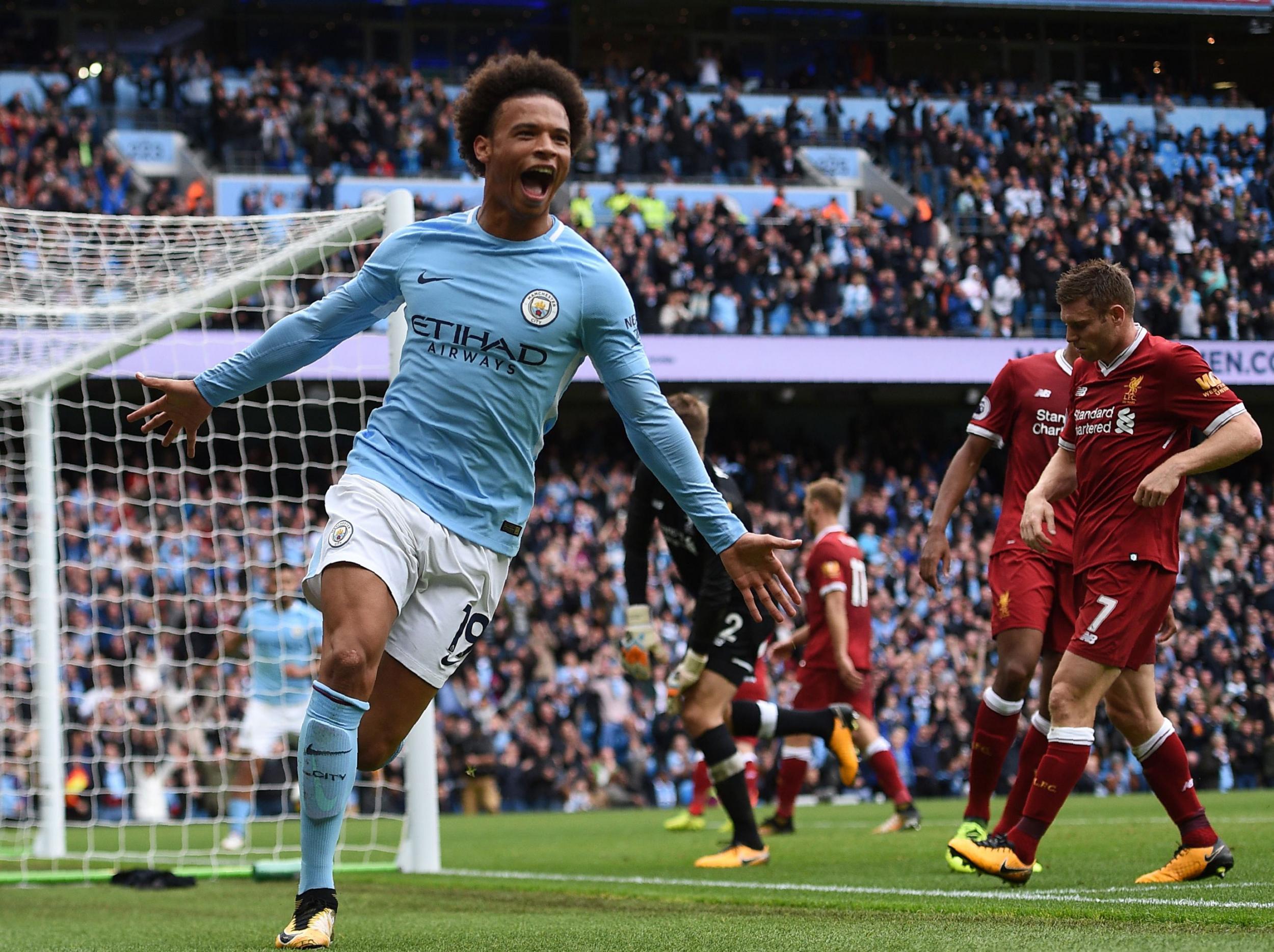
The current Liverpool don’t have the cause for such blood lust against City, but that doesn’t mean they can’t show the kind of fire that rivals Everton did in 1988 against them or - maybe more relevantly - in 1969 against Leeds United. The latter was a similar period when so many good sides and different champions were going up against each other, when the league looked as open as it did before this season began.
It’s only a year since Liverpool looked likelier title-winners than City, after all, and only a year since Jurgen Klopp was celebrating another win over Guardiola.
As with Ferguson, and pretty much every top-six manager right now given their pedigree, a figure like Klopp won’t take this lightly. He won't take it without dwelling on it, without punishing and pushing himself. For City to be so far ahead is emasculating. For City to beat Liverpool 5-0 in September was embarrassing.
That will enrage players into wanting to prove a point, and there are few managers better at enhancing the effects of that than Klopp. If motivation is his best managerial skill, he has the best possible set-up: the desire for revenge and vindication.
This is not to say it’s all about the psychological, since Klopp’s pressing approach has been proven to repeatedly work against Guardiola’s. It’s really about extra motivation maximising that approach, to properly get into City. That is what is required against a team on a run like this.
Before that match against Arsenal in 2004, Ferguson gave a team speech that will ring true for many of City’s rivals today. “No other team tackles them, so make sure [they] know that today’s going to be hard,” the United legend demanded. “Today’s going to be different.”
It probably requires that defiance, that wounded pride, to finally produce a different result.
Join our commenting forum
Join thought-provoking conversations, follow other Independent readers and see their replies
Comments